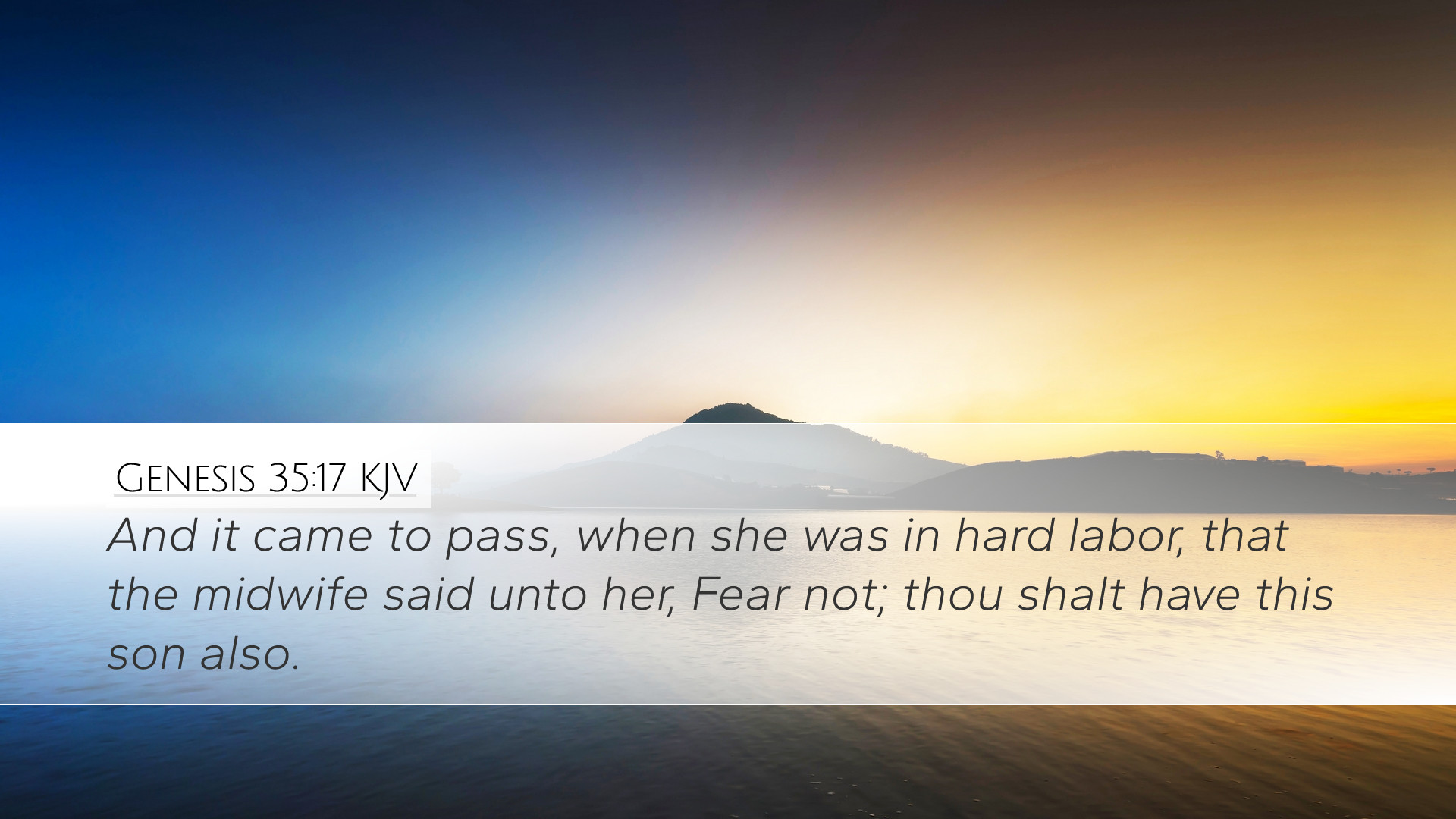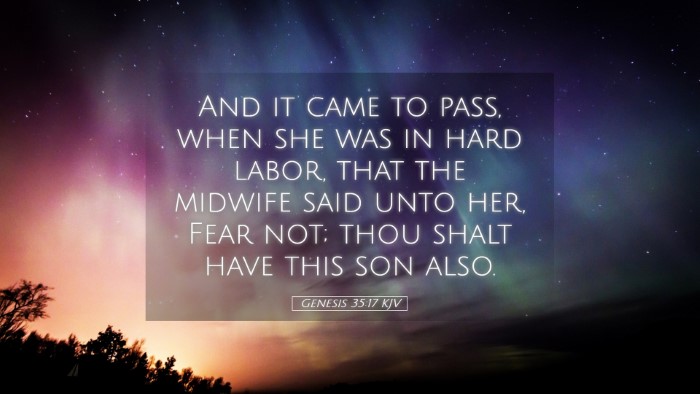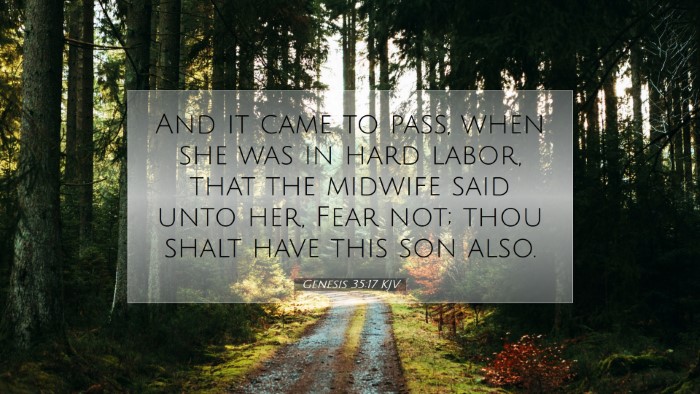Commentary on Genesis 35:17
Genesis 35:17: "And it came to pass, when she was in hard labor, that the midwife said unto her, Fear not; thou shalt have this son also."
Introduction
This verse is nestled within the narrative of Jacob's return to Bethel, highlighting the birth of Benjamin and the circumstances surrounding it. The complexities of childbirth in the ancient world are mirrored through the emotional terrain navigated by Rachel, invoking not only physical challenges but also spiritual significance.
Contextual Analysis
Before unpacking verse 17, it is important to understand its context within Genesis 35. Jacob's family is undergoing profound changes including the spiritual renewal he experiences upon returning to Bethel. This verse marks a pivotal moment in the lineage of Israel as Rachel, the beloved wife of Jacob, faces the culmination of her struggles related to motherhood.
Theological Themes
- Struggle and Redemption: Rachel's labor represents the struggles faced by many in life and the promise of redemption that follows. In biblical theology, childbirth often symbolizes new beginnings, aligning with the new identity Jacob is about to assume as a father of the tribes of Israel.
- Fear and Assurance: The midwife's encouragement serves as a profound reminder of God's providential care. The biblical narrative often juxtaposes human fear with divine assurance, symbolically mirroring the larger narrative of Israel's journey.
Insights from Commentators
Matthew Henry
In his commentary, Matthew Henry emphasizes the emotional gravity of the moment. He reflects on Rachel's painful labor and the prophetic words of the midwife. Henry points out that the midwife's assurance mirrors God's promises throughout scripture, where He often assures His people in times of fear and uncertainty. Notably, Henry draws attention to the double significance of Benjamin's birth: it not only identifies him as the last son but also underscores the covenantal promise that God had extended to Jacob regarding his descendants.
Albert Barnes
Albert Barnes examines the cultural context of midwives in ancient Israelite society, suggesting that they played a critical role, providing both physical support and emotional assurance. Barnes notes the scriptural theme that frequently portrays midwives as instruments of God's mercy. He stresses the phrase "fear not," indicating the importance of faith during distressing times. Barnes articulates that in this narrative, Rachel's imminent death during childbirth acts as a harbinger of loss yet opens the door for the continuation of God’s promise through Benjamin, emphasizing that God’s plans are consummated amidst human frailty.
Adam Clarke
Adam Clarke takes a close look at the linguistic elements of the verse, noting that the usage of "hard labor" teaches us about the tension of creation and procreation—the very essence of life. Clarke discusses Rachel's desperation—her previous struggles with fertility—and how this moment reflects both personal and communal significance. He considers the midwife's response a poignant encapsulation of hope where fear threatens to overwhelm the human experience, urging an understanding of divine providence in both delivery and destiny.
Pastoral Applications
For pastors and leaders, this verse teaches a critical lesson on the balance between struggle and faith. In the face of congregational challenges, the story provides a framework for understanding the power of encouragement and the importance of spoken blessings. Just as the midwife reassured Rachel, so too can leaders offer spiritual support to those in distress.
- Encouraging Births of New Ministries: Every new ministry or initiative can bear resemblance to a difficult birth. Acknowledging the struggles while celebrating the potential blessings can foster a culture of resilience.
- Integrating Fear and Faith: This passage is a reminder that fear is a natural part of the human experience; however, faith provides the assurance needed to step into new callings.
Conclusion
Genesis 35:17 encapsulates rich theological insights and pastoral wisdom. It highlights the intertwined nature of human experiences marked by struggle, fear, and eventual renewal. Whether through the lens of Henry, Barnes or Clarke, the message resounds with the ever-present assurance of God’s guiding hand in the midst of life's tumult. As we engage with this text, let it serve as a reminder of the hope and promises that accompany even the most challenging circumstances.


